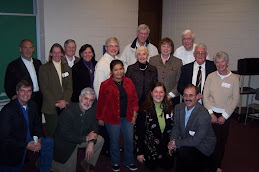 Over a year ago Seattle priest, Fr Michael Ryan, launched a project called, "What If We Just Said Wait?" The project, recommended a delay in use of the new translation of the missal because the word-for-word translation from Latin was "clumsy, awkward and alien to spoken English. Ryan’s web site, whatifwejustsaidwait.org , has gathered over 22,000 signatures to-date.
Over a year ago Seattle priest, Fr Michael Ryan, launched a project called, "What If We Just Said Wait?" The project, recommended a delay in use of the new translation of the missal because the word-for-word translation from Latin was "clumsy, awkward and alien to spoken English. Ryan’s web site, whatifwejustsaidwait.org , has gathered over 22,000 signatures to-date.
Enter the new bishop for Seattle, J. Peter Sartain (formerly of the Joliet diocese of Illinois). The rumor was that Sartain called Ryan on the carpet and told him there would be no dissension in the ranks, particularly from the rector of St. James Cathedral. Now Ryan has publicly stated that the implementation of the new texts was inevitable and that his parish would cooperate in their use despite his personal reservations. Hmmm….
http://www.ncronline.org/news/pastor-says-its-time-let-go-accept-new-missal-inevitable






